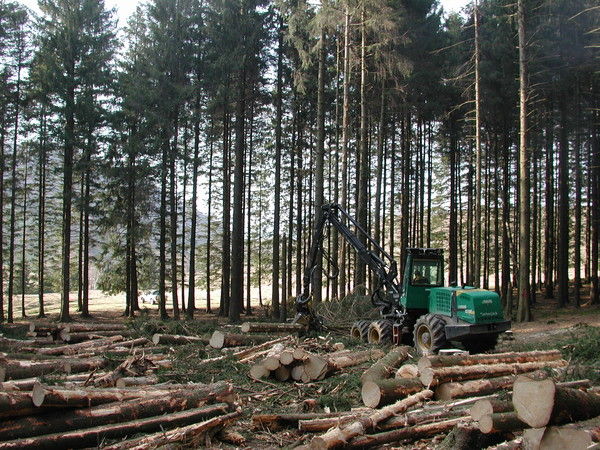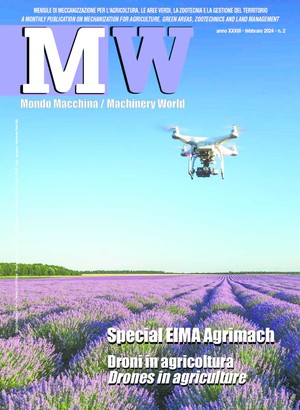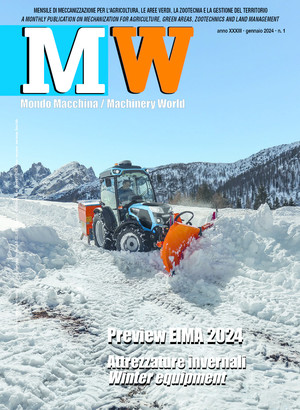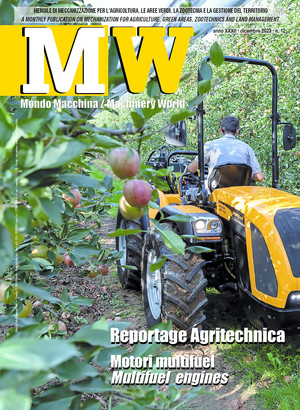
Bioenergy: policy agenda in Italy and in Europe
Europe is looking to the 2030 consolidation of the idea of a future economy increasingly attentive to environmental questions. The new objectives set by the European Council for the use of FER, energy efficiency and climate-altering gas emissions mark a further but slight acceleration towards a green economy. The worlds of research and industry are intensifying the dialogue for a change of pace for opening new horizons in the field of the bioeconomy. These are issues which will be given thorough treatment on the occasion of EIMA Energy
At the end of a long discussion over the night of October 23rd and 24th the European Council established new European Union objectives on climate change and energy to achieve by 2030. The conclusions reached confirm the target named by the Commission in July for the reduction of greenhouse gas emissions by 40% below the 1990 level and for increasing renewable energy sources which should reach 27% of final energy consumption, that is, by 3 percentage points less that the Commission’s proposal of 30%. EIMA International is the precise venue for updating these issues in the setting of the EIMA Energy Salon organized by FederUnacoma in collaboration with ITABIA, the Italian Biomass Association. At present, among the three energy policy objectives, the only one binding at the national level is that on climate-altering gas emissions whereas for renewables and efficiency, the target established applies only at the EU level, a consideration which substantially limits its effect.
There is therefore the design to relaunch a further commitment to EU energy policy compared to the 2020 reference trajectories even though the expectations of many environmental associations and the renewable energy sources (RES) sector would have aimed for an even greater overall effort. In fact recent studies show that to counter global warming in a more adequate way more drastic measures are needed, that the RES growth trend would reach the 27% target set on the drive of a consolidated market and that little would be required to achieve results which are decisively more interesting. However, the current European Council recommendations do not exclude the possibility of setting out more ambitious targets for the upcoming steps on decisions made by the Commission and the European Parliament ahead of the Conference of the Parties on Climate Change scheduled for December 2015 in Paris. This said, the close association between the decarbonization of the economy and the creation of new jobs must again be emphasized. According to an Althesys study conducted for Greenpeace, the overall financial revenues produced in the renewables sector in Italy in 2013 apparently came to more than € 6 billion with employment at 63,000 units with ample margins for an increase in 2030 up to 100,000. With these dynamics, bioenergy could provide a fundamental contribution especially in connection with the production chain for supplying biomass resources. It is sufficient to consider that for the maintenance of woods and water course beds, essential for coping with hydrogeographic deterioration phenomena, more than 400 million work hours over the coming ten years, accounting for some 19,000 equivalent jobs per year, would be needed. It thus appears evident that the primary sector, agriculture and forestry, are pivotal for correctly planning the use of biomass, the renewable resources most closely linked to the land. For these reasons, the Ministry Ministry for Agriculture, Food and Forestry Policies, with a contribution from Itabia, launched a Sector Plan for Bioenergy approved August 5th by the State Regions Conference.
Ahead of the accord endorsed, Undersecretary Giuseppe Castiglione, with an agro-energy mandate, declared,“This plan is the representation of the will to look to the future of renewable resources and the role agriculture must play in that innovation sector. (It will therefore be) an instrument for the regions to put these recommendation to use for the development of agro-energy in the territories of their competence.” For enacting the plan, which names a horizontal priority and ten vertical activities, great importance is given to special communications and training campaigns for the purpose of pursuing a sustainable social policy for bioenergy. On the communications front, FederUnacoma, in connection with EIMA Energy, has been committed for years to facilitating the transfer of knowledge acquired with reference to research activities as well as the very real experience gained by successful agro-energy production chains. The schedule for this year includes an international workshop of Biomass and the Land: Made in Italy Experience in New International Markets, a cycle of theme seminars on the bioenergy and bioeconomy production chains, and dynamic demonstrations of machinery and equipment animated by Cnr Ivalsa (National Research Council and Tree and Timber Institute) researchers. For more details on these initiatives it’s possible visit the website www.eimaenergy.it.








